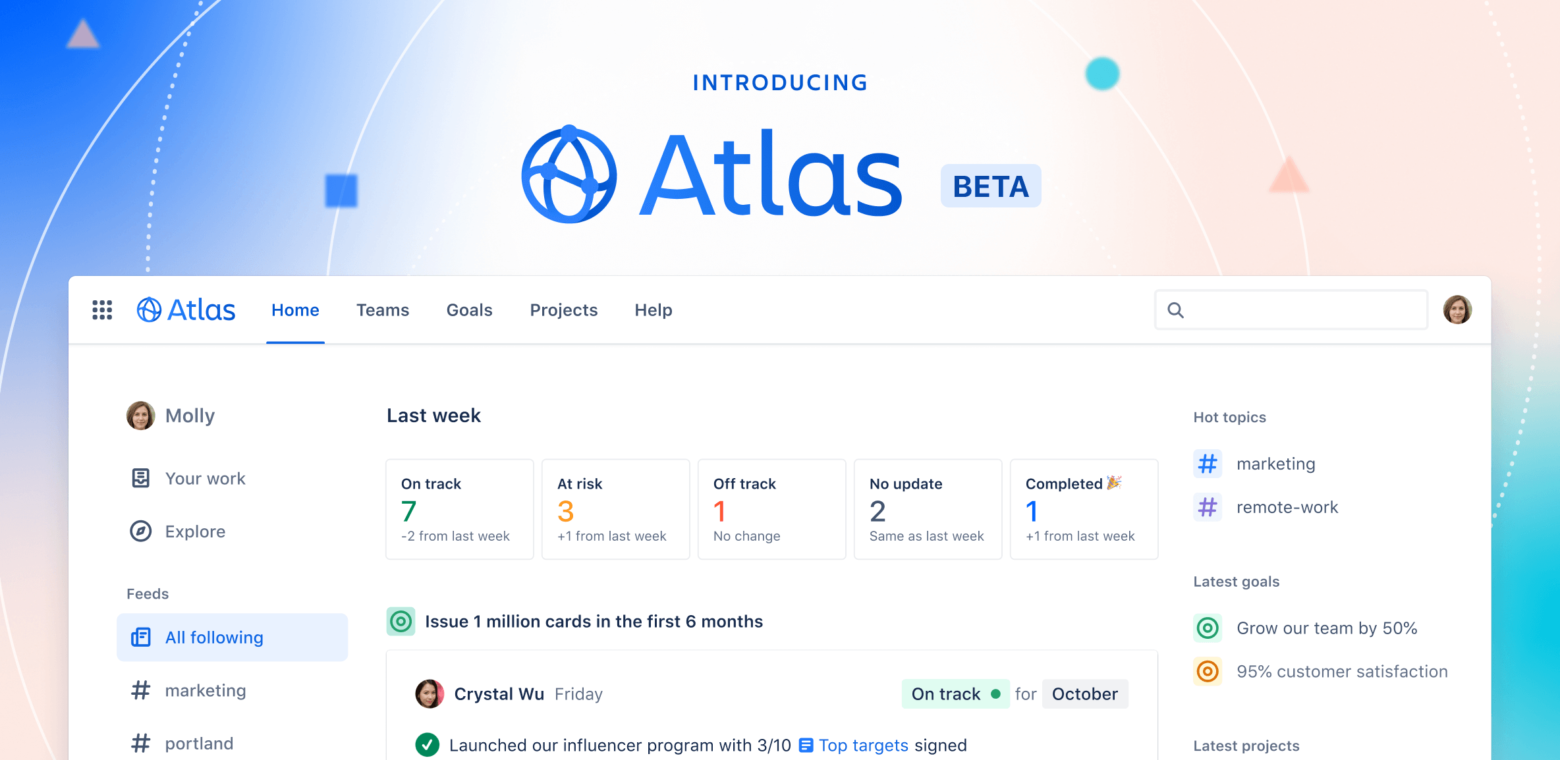Introducing Atlas – your new teamwork directory
Work differently, together.
If you could get all the people in an organization rowing in the same direction, you could dominate any industry, in any market, against any competition, at any time.
– Patrick Lencioni, author of the perennial bestseller, “The Five Dysfunctions of a Team: A Leadership Fable”
For the past 20 years, we’ve been on a mission to unleash the potential of every team. In that time, we’ve learned that the key to enabling teams to achieve greater outcomes is striking the right balance between alignment and autonomy. The stronger the alignment, the more your teams understand their North Star and the more autonomy you can afford. Finding that perfect balance is already hard, but if you’re growing, transforming, and navigating the digital transformation of work, it’s especially hard.
According to the recent Okta’s Businesses at Work 2022 report, the average number of apps deployed in an organization is now 89 – a 24% increase since 2016. And companies with more than 2,000 employees deploy an average of 187 apps. Information about work is as scattered across apps and as difficult to find as it’s ever been – the chance that your teams are misaligned is high.
It’s common to think that consolidating and standardizing on a smaller set of apps will solve all your problems. But when you force teams to stop using the apps that enable them to do their best work, you strip them of the autonomy that lets them thrive in the first place. It’s an easy path to end up with a compliant workforce and decidedly average outcomes.
That’s why we built Atlas, the first teamwork directory to connect the dots across teams, their apps, and work – wherever it happens. Atlas equips teams with a common vocabulary to openly communicate and get a shared understanding of the context of their work:
- What are we doing and why?
- How’s it going?
- Who’s working on it?
These are simple questions that can be really hard to answer if you don’t know who to ask or where to look.
Introducing Atlas
Atlas enables every team to openly communicate and get context about their work – the key to achieving alignment and empowering them with autonomy to fuel great outcomes.
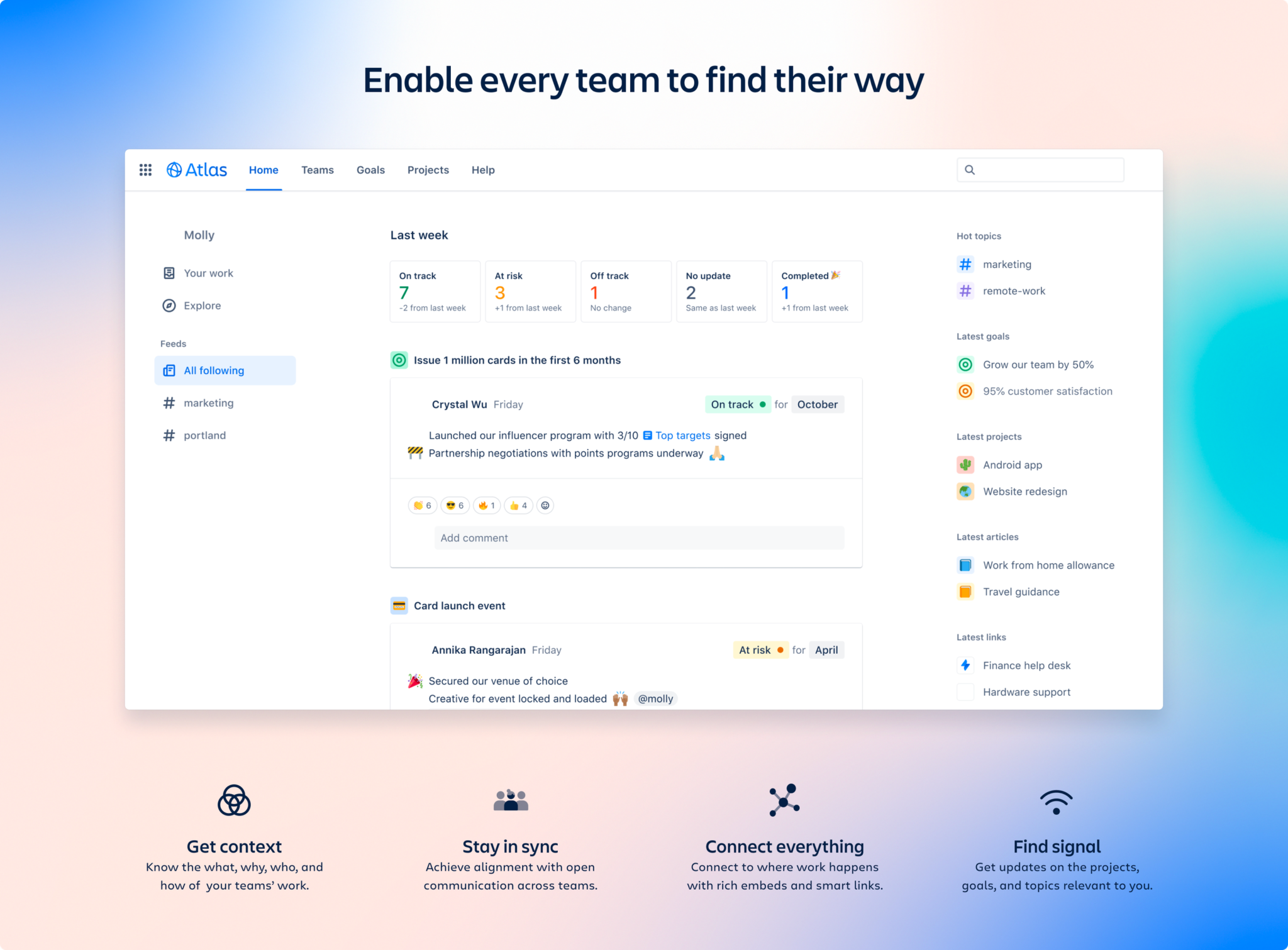
Atlas has been in private beta under the name Team Central for the past year. It’s already helping teams get aligned and achieve greater outcomes at Canva, Warby Parker, LaunchDarkly, and Turnitin to name a few.

Here’s how it works.
“What are we doing and why?” 
Achieving alignment starts with a shared understanding of what you’re doing and why. Atlas gives every project a “homepage,” giving instant context to anyone who needs it.
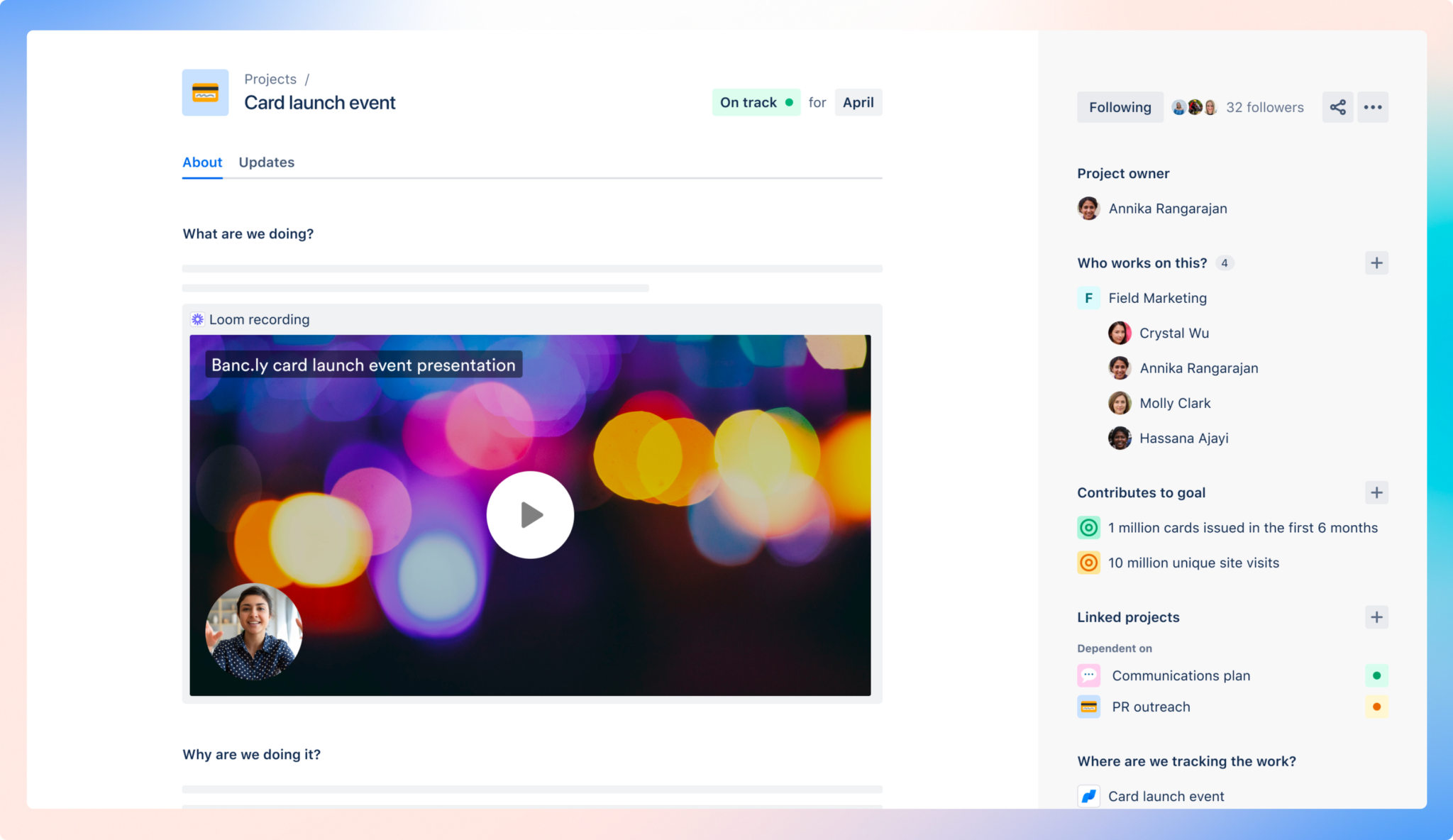
From here, anyone can get a deep understanding of what the project entails and what success looks like. Project and goal homepages can be enriched with Smart Links, which allow embedded previews of documents from popular work management tools, including Loom, Google Docs, Figma, and Confluence.
Give teams purpose
It’s incredibly motivating to understand how your work is contributing to a greater goal. Every project in Atlas can be connected to a goal, giving your teams purpose by connecting their work to outcomes.
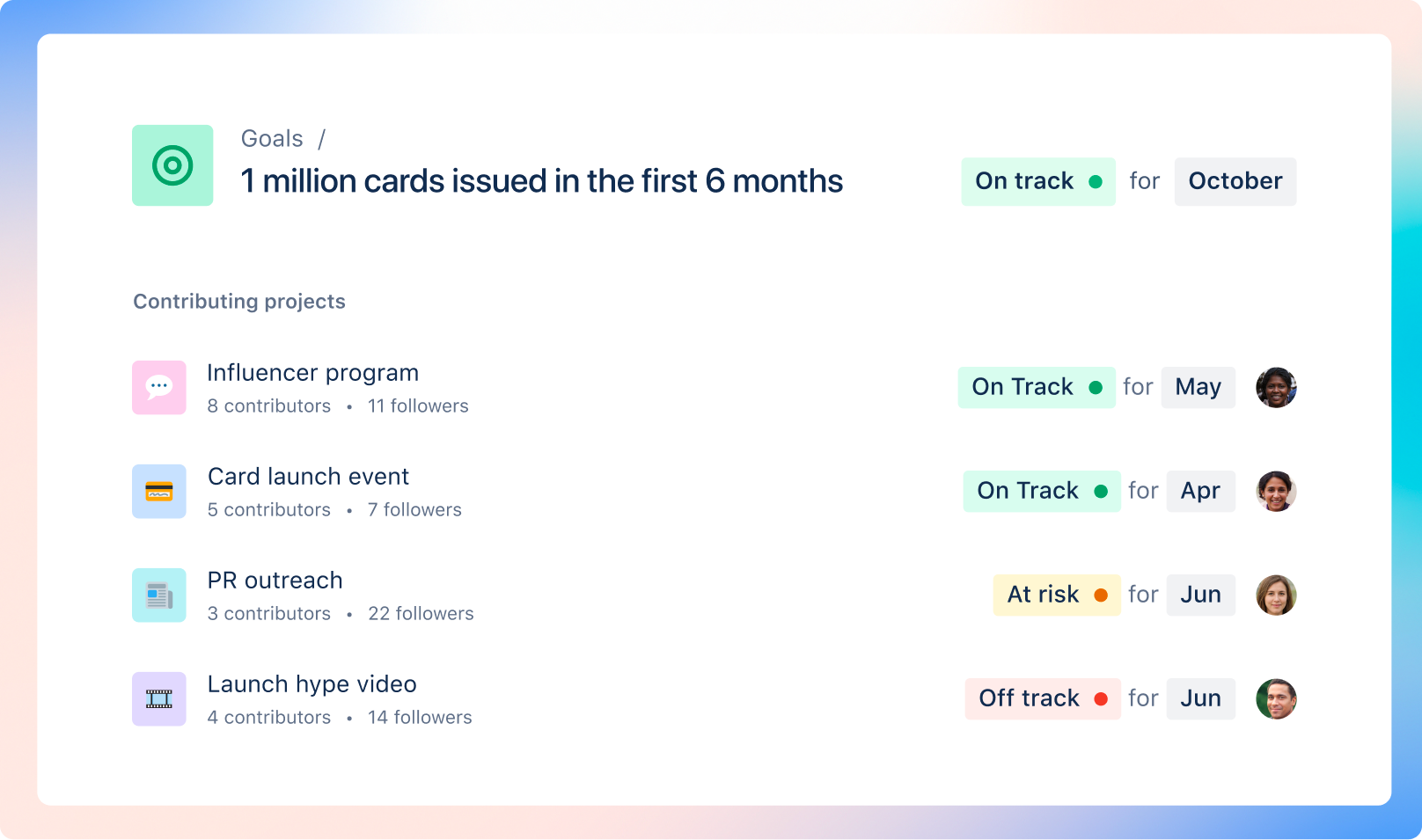
Goals are great for leaders that need a 10,000-foot view of how their teams are tracking against outcomes versus getting into the details of individual projects owned by their teams. Everyone can stay connected and informed through the lens that’s most relevant for them, without any duplication of work.
Connect where work is actually happening
Atlas aligns teams with a common vocabulary on how to talk about work and provides visibility into how that work connects to shared outcomes. With alignment, teams are empowered to do their work in the apps that let them thrive. Smart Links surface that work, whether it’s in Trello, Jira Software, Google Workplace, or Asana – whatever works best for the team.
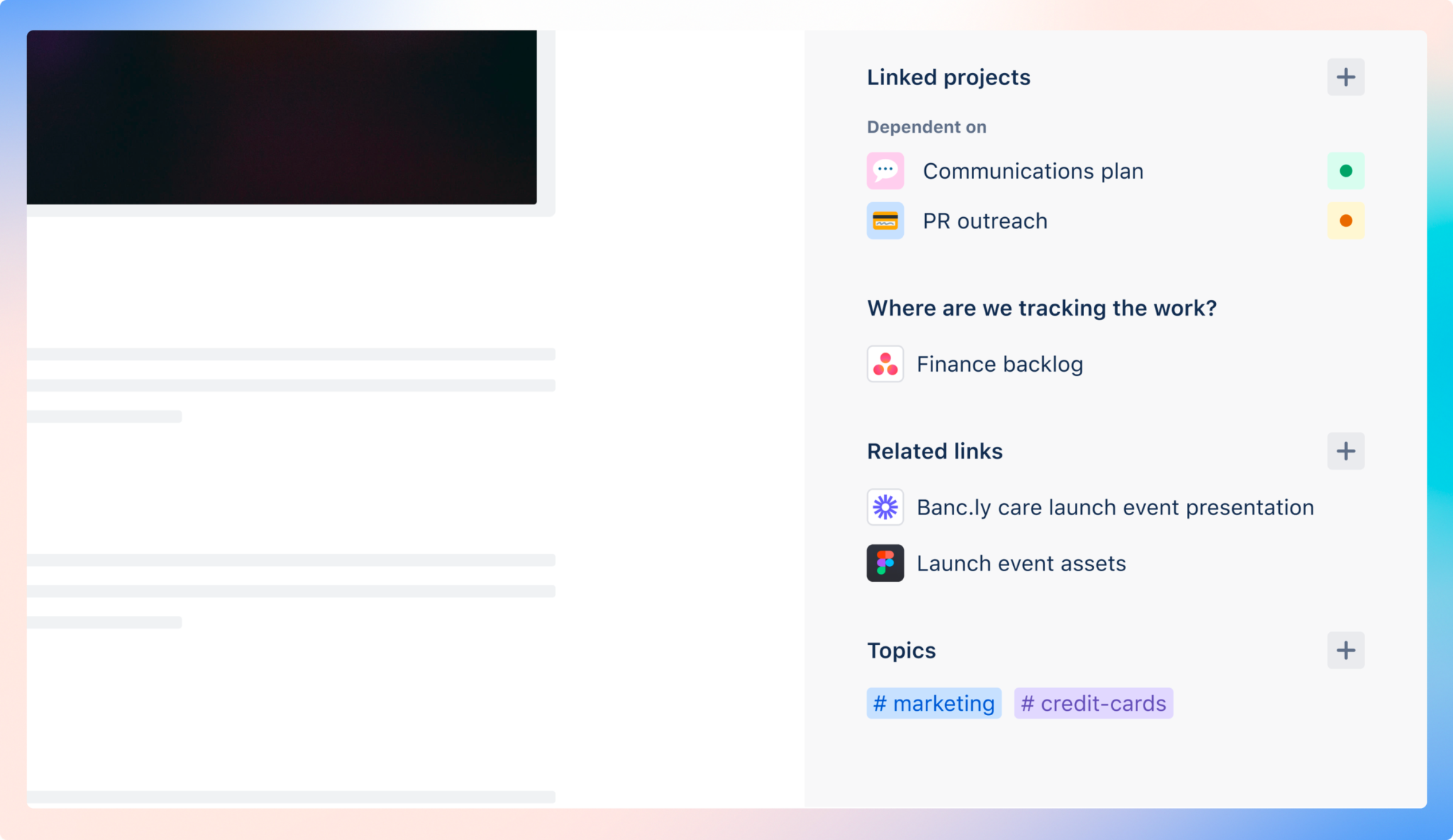
Smart Links also make it possible to add live previews and updates on projects and goals to any Confluence page, Jira issue, or Trello board. Just paste a link to any project, goal, or #tag in Atlas to display it as a live link, card, or embed.
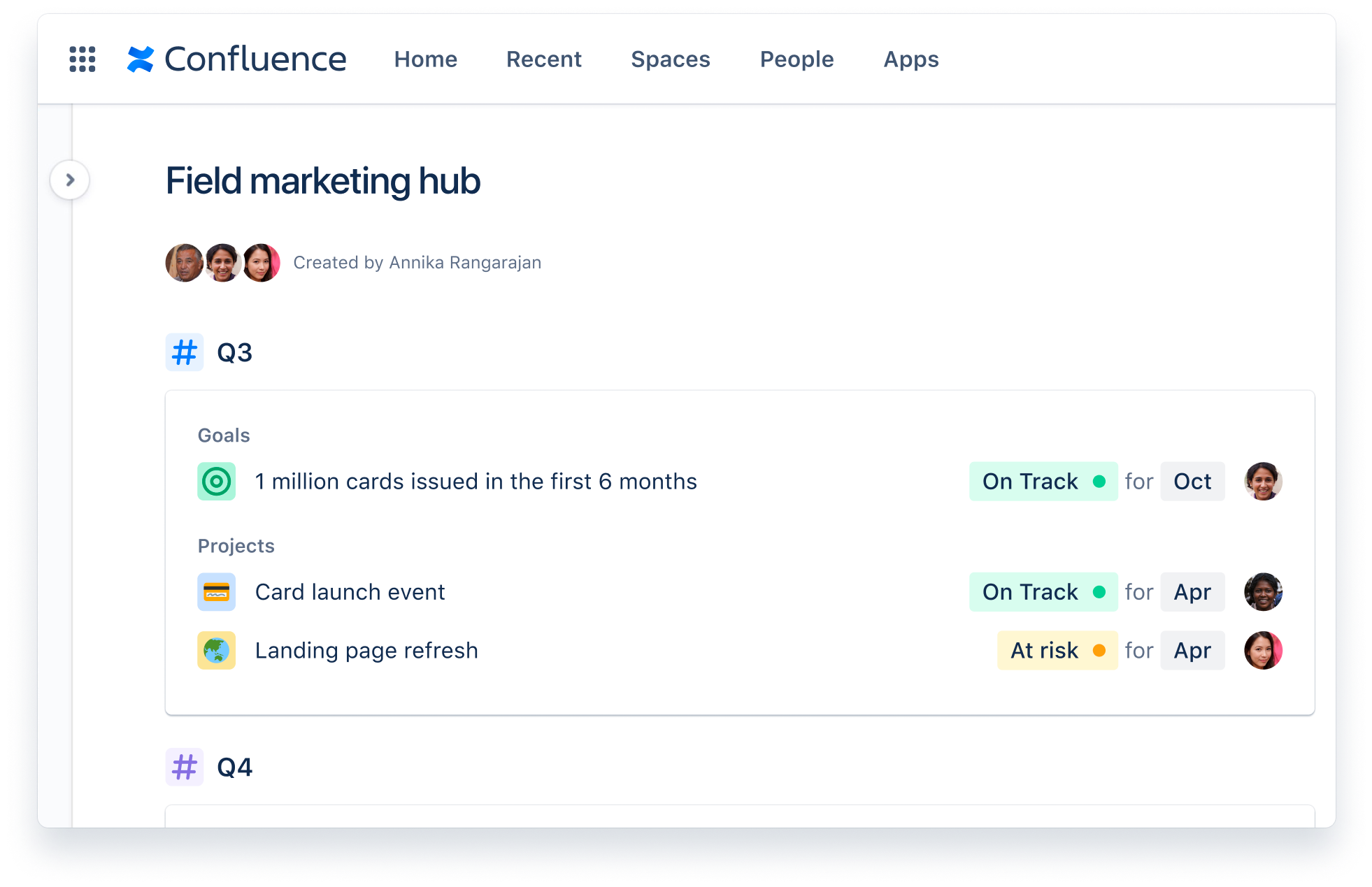
Soon, you’ll be able to view and post updates to projects from linked epics inside Jira Software.
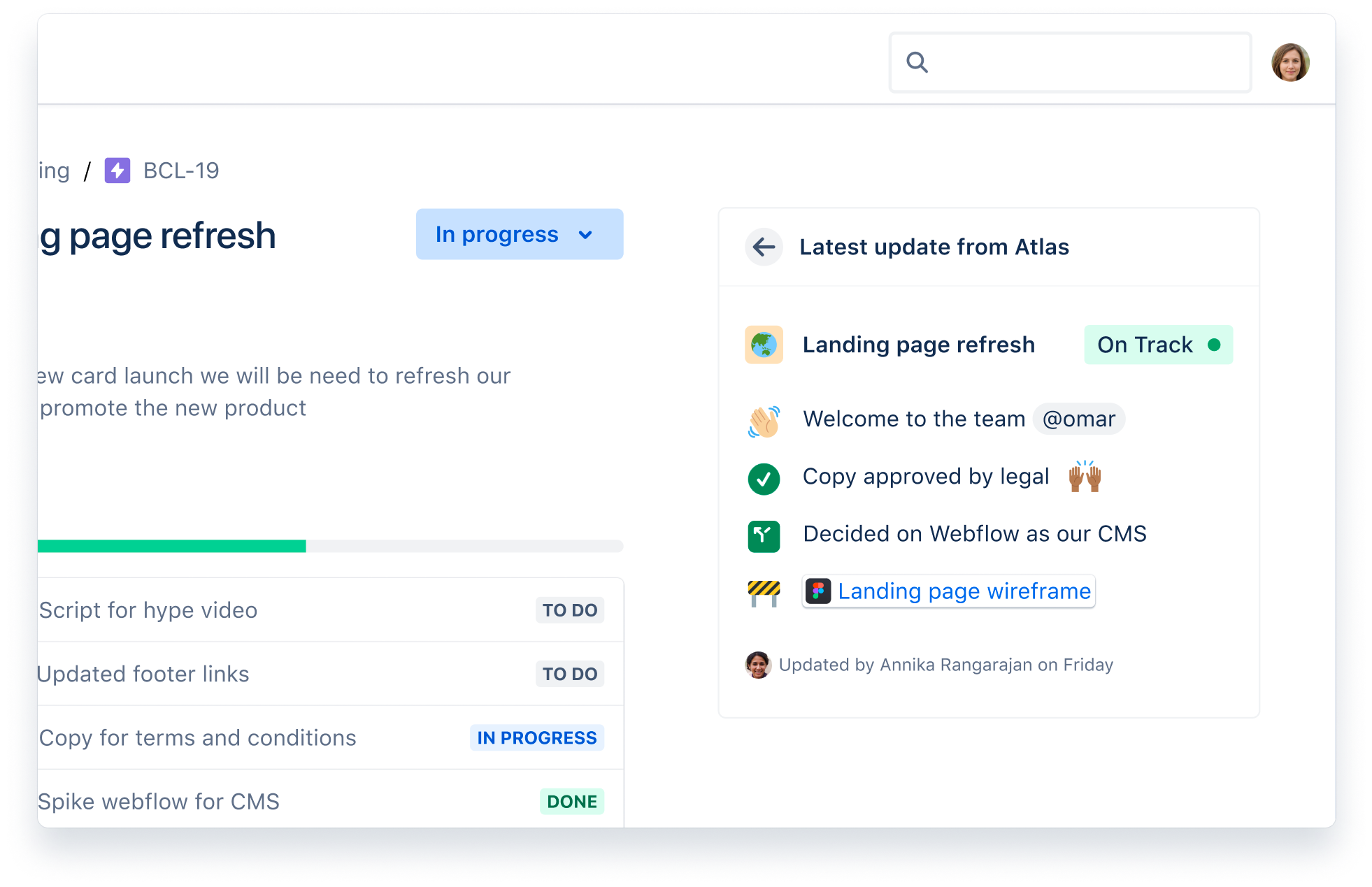
We’re continually building stronger integrations and richer contextual experiences in both Atlassian and the third-party apps that we know teams rely on to get work done.
“How’s it going?” 
We all know them, we all hate them: the dreaded status meeting. “Is it my turn yet?” “Is anyone even listening to me?” “Are my updates even useful?” “Everyone seems to be ‘multi-tasking.” It doesn’t need to be this way.
No more “Why am I even here?”
Atlas can eliminate the need to meet live because it’s completely asynchronous. You can write and read updates when it works best for you. Every week for projects and every month for goals, owners are reminded to post their updates.
Every Monday, you’ll see a personalized digest of updates on the projects and goals you’ve chosen to follow, so you get all the signal and none of the noise.
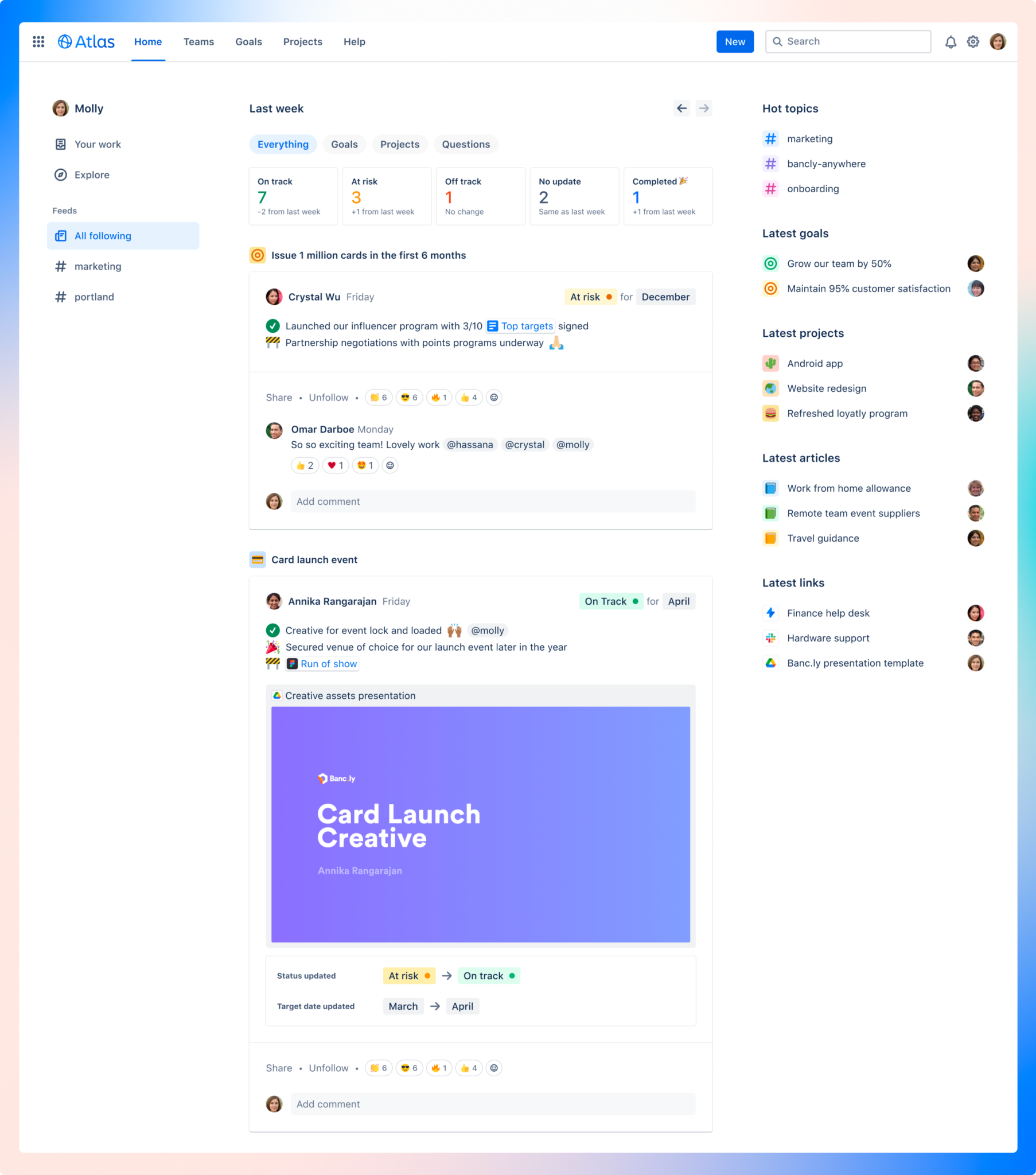
No more “Is anyone listening to me?”
Atlas limits status updates to 280 characters, encouraging owners to be better communicators by helping them focus on providing just enough context to be useful – like learning how to craft that perfect tweet. Teams can also embed videos, images, and gifs to create a useful, engaging update.
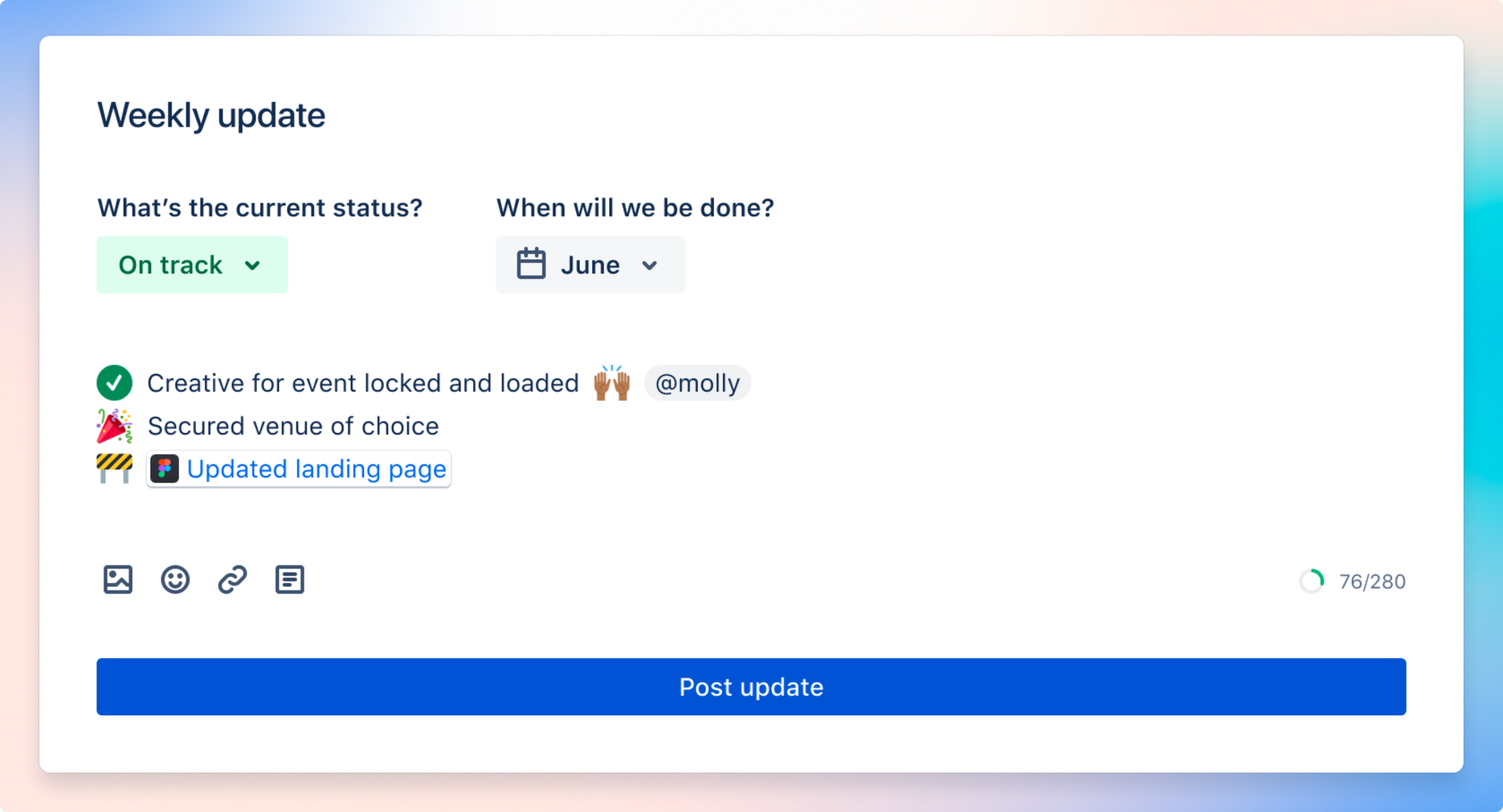
More efficient ways to stay in the know
In addition to your Atlas feed, at the start of every week, you’ll get a personalized digest delivered directly to email, Slack, or Microsoft Teams.
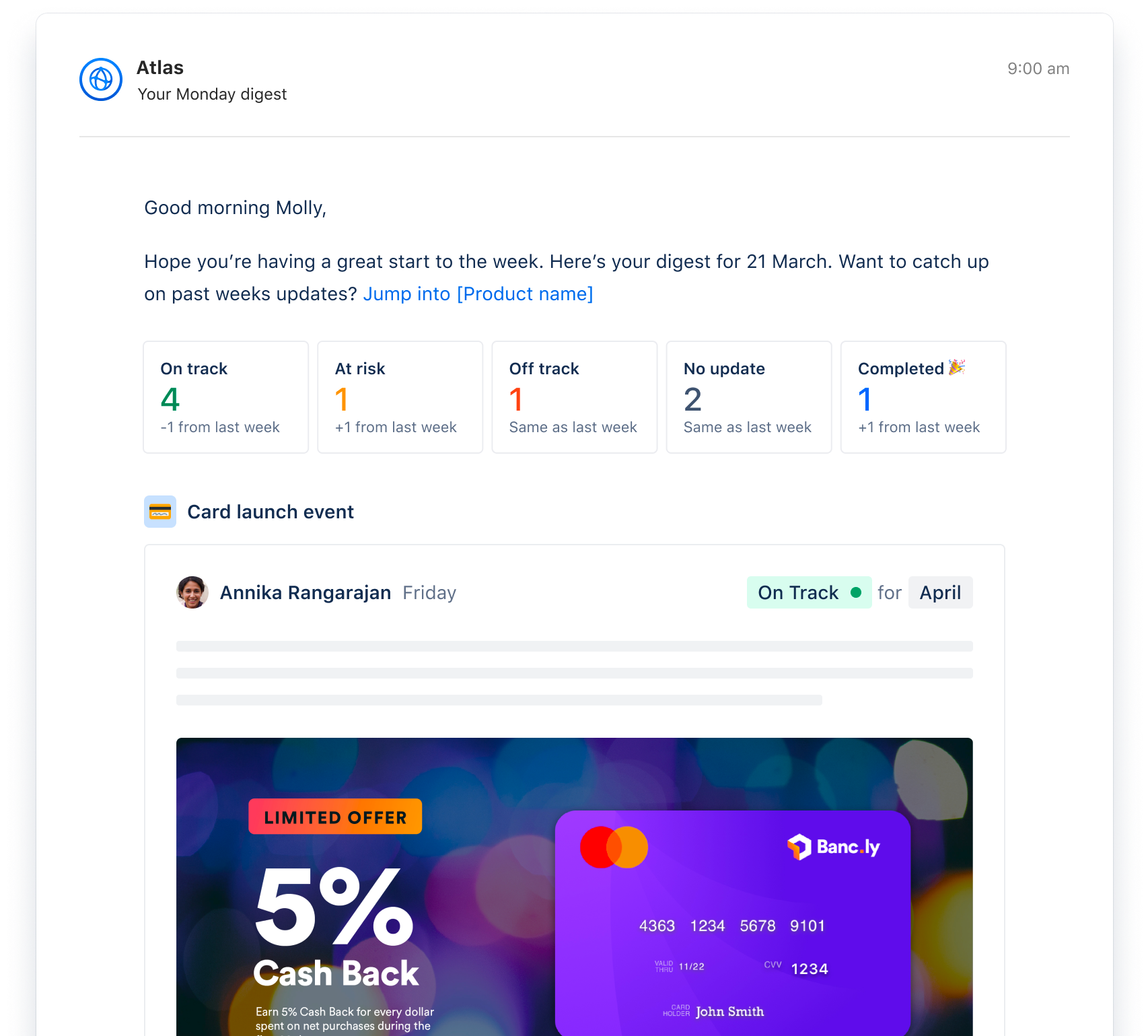
You can even connect projects and goals to specific channels in Slack to ensure that every stakeholder is aware of updates as they happen.
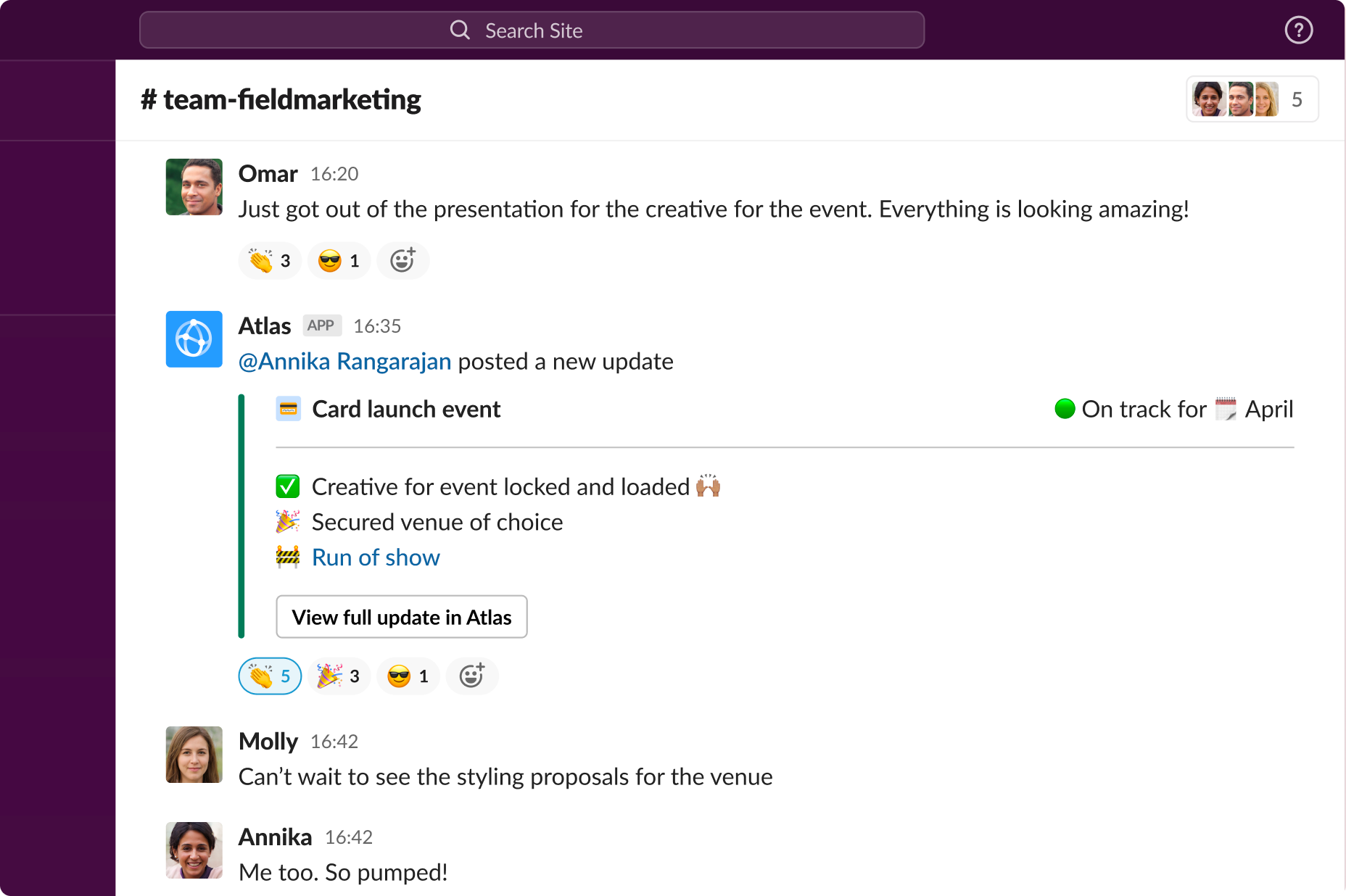
With updates that are meaningful – and ones that followers will actually engage with – Atlas will drive alignment across teams at your company in no time.

“Who’s working on it?” 
Every company has an employee directory, but they’re often not all that useful on their own. Traditional employee directories give you a top-down view of how your company is structured – great if you need to build an org chart but not helpful in moving their work forward. They’re not connected to the work, and as a result, they can’t reflect the reality of how your company works together and what people are working on.
Get the complete picture
Cross-functional collaboration across departments is more common than ever. As a result, new self-managed teams – what we call “teams of teams” – form all the time to collaborate on projects. To move work forward, it’s important to understand not just who someone reports to, but also what teams they’re part of, and what those teams are working on.
In Atlas, from any project or goal, you can see the team that’s working on it. And because teams are updating their projects every week, this is the most accurate, up-to-date representation of who’s working on this?
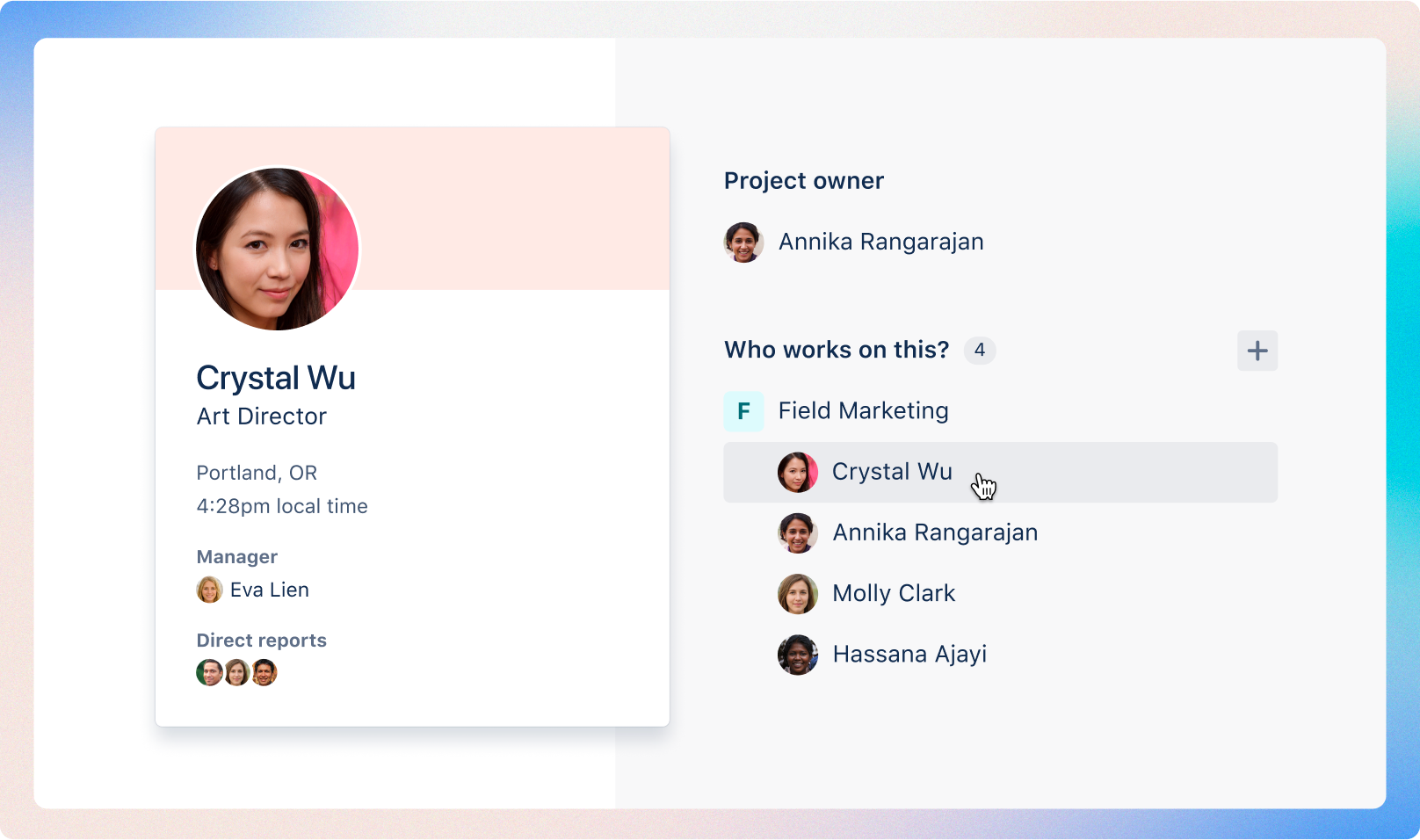
Every individual has their own profile, which gives a snapshot of who they are, what they’re working on, and how they fit into your company. Atlas syncs with popular identity providers like Okta, so you can trust that it’s always in sync with your source of truth.
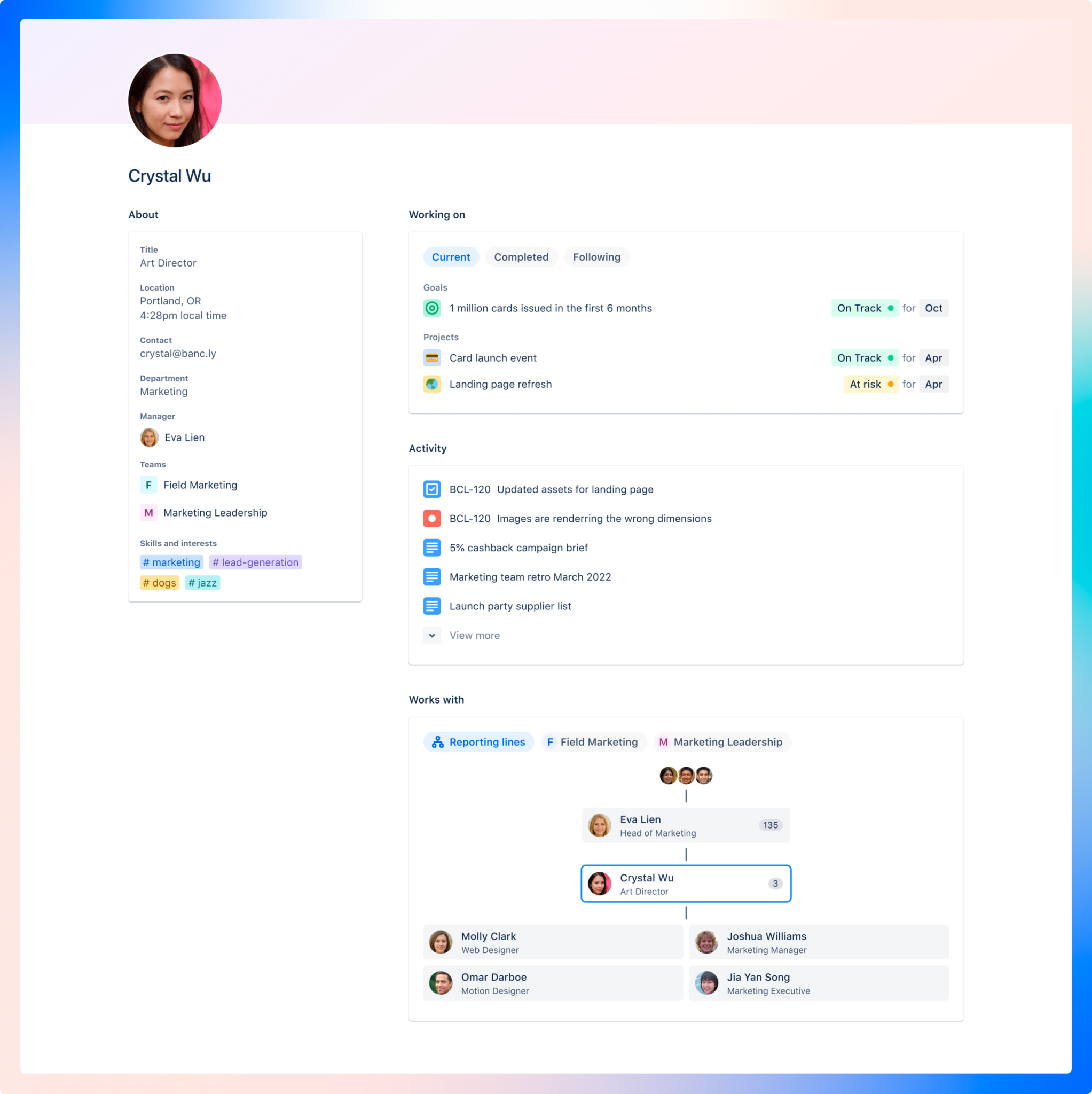
Get an accurate view of how teams actually work together
Not only do you have a top-down view of your company, but you’ve also got the bottoms-up view of self-formed teams, who each have their own profile as well.
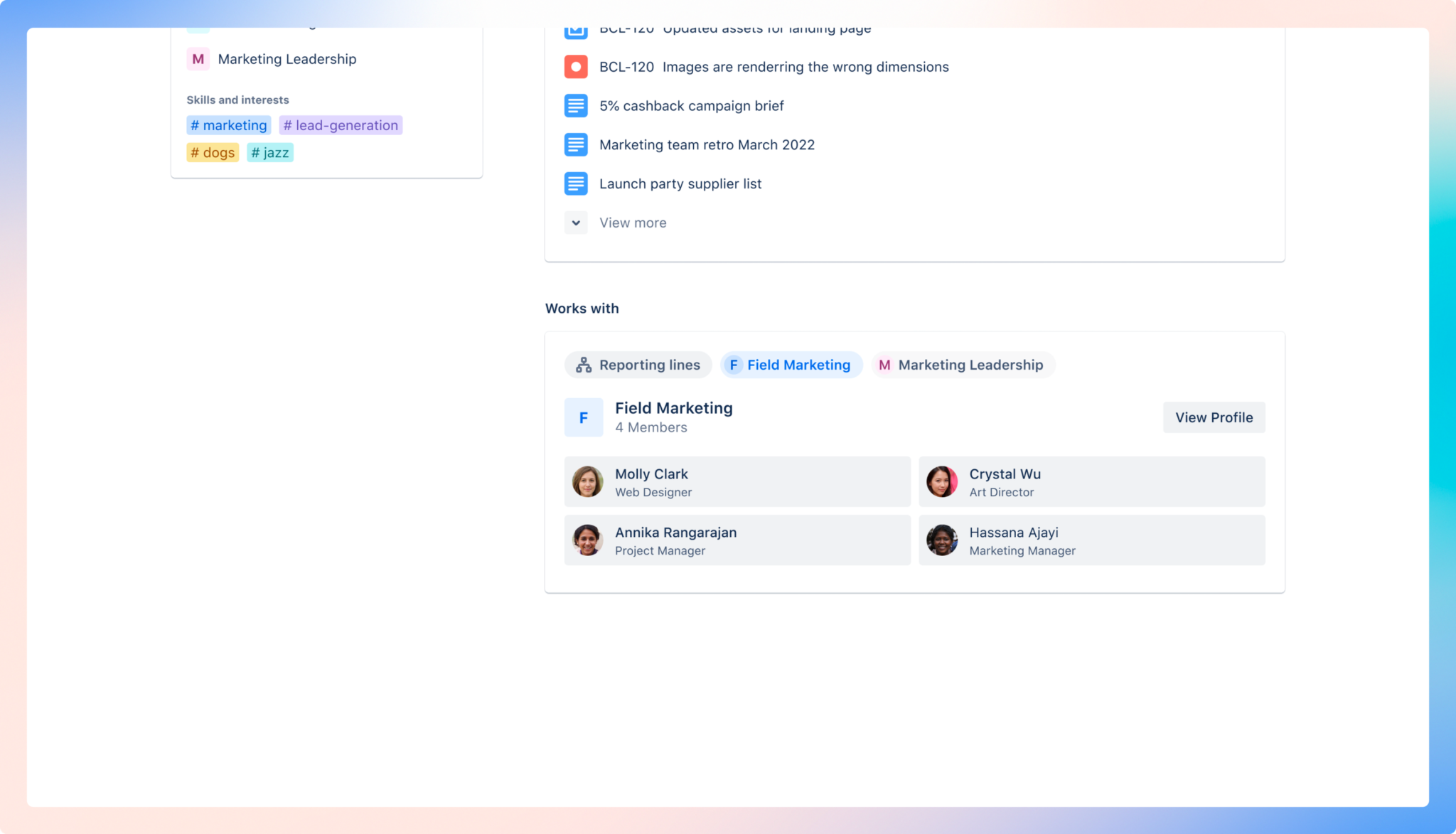
Built on the Atlassian Platform, Team profiles provide an aggregated view of not just who’s on the team, but – thanks to Atlas – you also get the context of what they’re working on and where that work is happening.
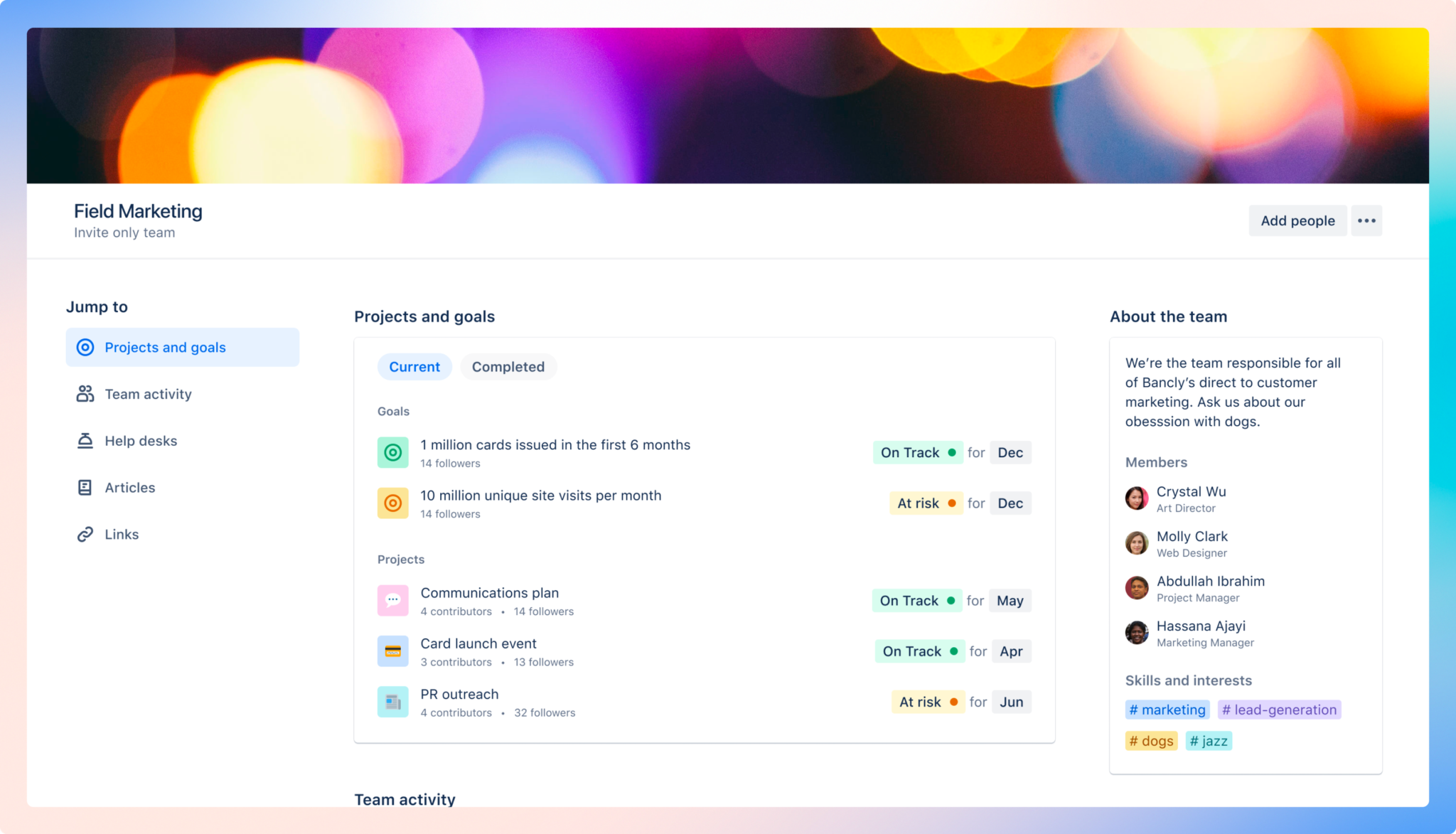
The best part is that we’re embedding these universal profiles inside the Atlassian products your teams are already using, starting with Jira and Confluence Cloud. So, whether you’re seeking more context on who owns a Jira issue or @mentioning a team in Confluence, Atlas connects the dots across them all.
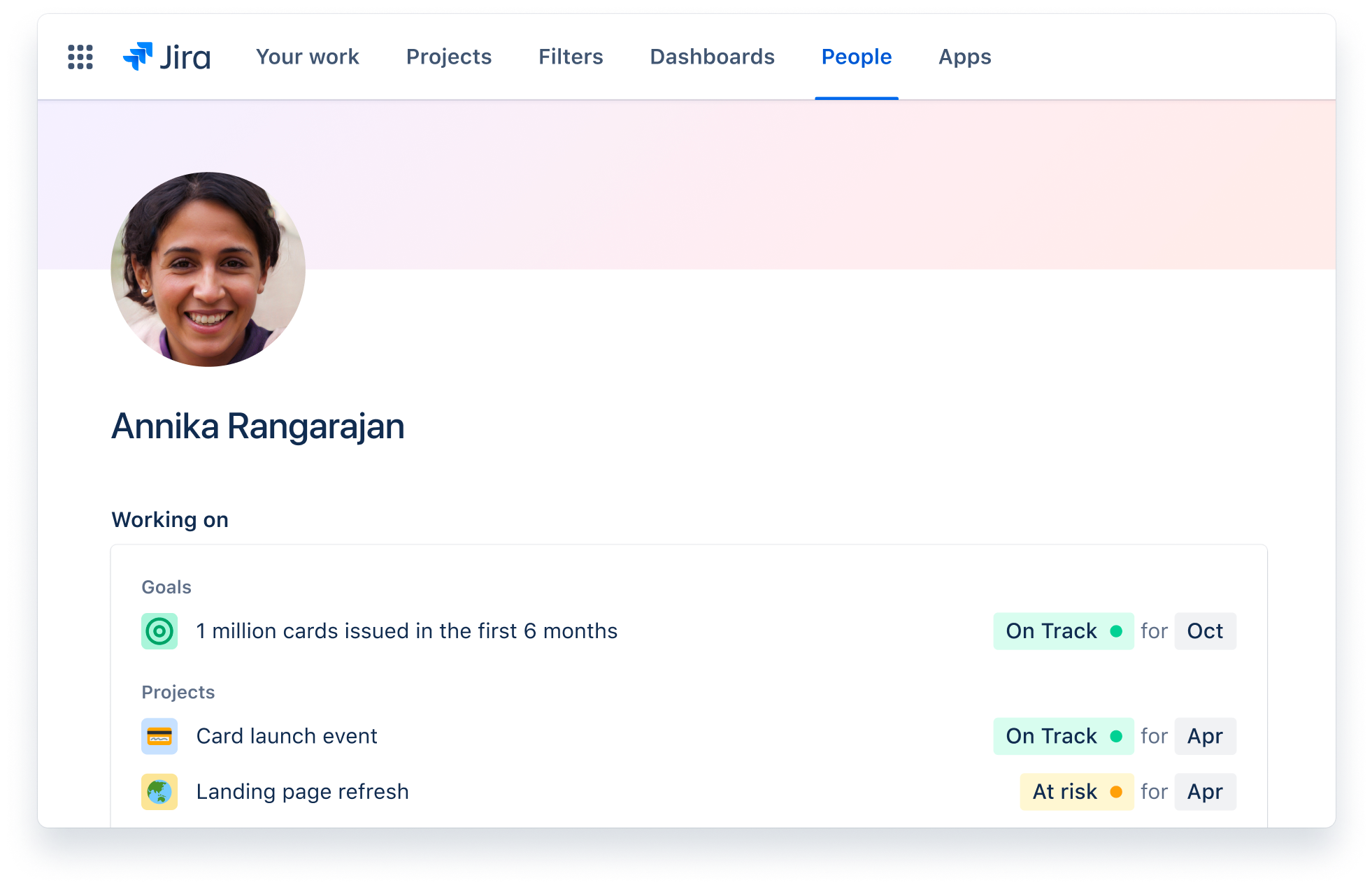
Learn without knowing who to ask
Atlas also enriches Team profiles with the unique skills and interests of that team. If you want to learn more about a topic, soon, Atlas will give you a holistic view of all the updates, projects and goals, knowledge, and people related to that topic in your company so that you can learn without knowing who to ask or losing speed.
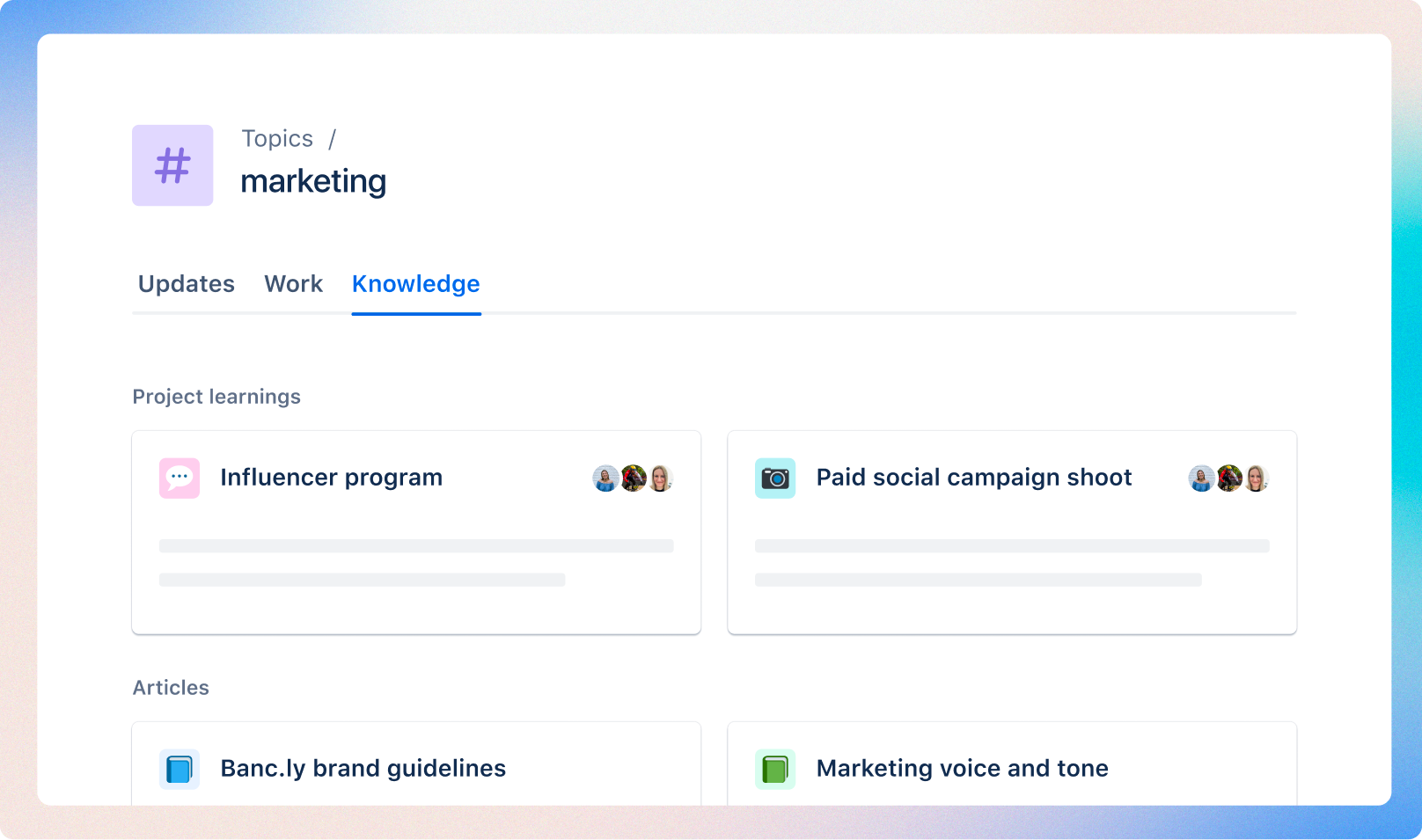
That’s Atlas – your new teamwork directory bringing together your teams, their apps, and their work – wherever it happens.
Achieve alignment and enable greater outcomes
Join the likes of Canva, Warby Parker, LaunchDarkly, and Turnitin, who are all using Atlas to get teams aligned and achieve greater outcomes. You can start using Atlas with your teams today. It’s free for your entire company.
We’re excited to see how Atlas can help you unleash the potential of every team at your company as we approach exiting beta in the second half of this year.
